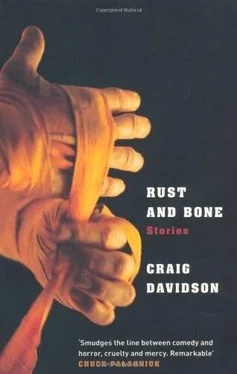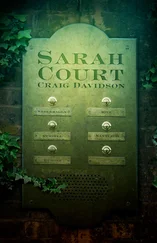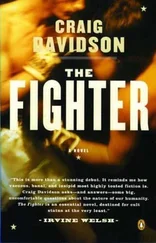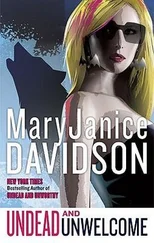Another boy stood in the corner. The concrete at his feet scorched black. A pile of sticks, a half-burnt mitten, a soda bottle melted down to a charred lump of plastic. Two boys playing with fire in an abandoned house. The city was growing so quickly, green spaces paved into parking lots—where could boys go to do the sorts of things boys did? Two boys playing with matches, piss-scared they’d be caught. One of them had tried to run.
“Go,” she said to the other kid who was already moving up the stairs. “Get help. Get … help.”
She knelt beside the wounded boy, pressing her hands to his chest. Redness pushed between her fingers, warming them. How old was he? Maybe twelve, maybe younger. She called it in. Shots fired. Civilian down . The boy coughed up blood. His fingers were long and shapely; girlish. She pulled him onto her lap and tilted his head, scooping blood from his mouth with her fingers. His nose was slightly upturned—the word devilish flitted through her mind. A smear of ash on his chin. His eyes wide open, glazed, looking up into the darkness. Calm, hugely round eyes.
“Please,” she said, “please.”
In that moment, she saw the boy’s funeral. A small group gathered on a grassy hill, bright winter sunlight washing the snow-topped tombstones. She saw the coffin, small and narrow and polished to a high gloss. She saw a blown-up photo leaning on an easel, a picture of the boy as she’d never known, the boy’s face wide open and smiling. She saw the boy’s father sobbing in the sloppy and frightening way some men have, loud and gasping for air.
“Why did you run?” she whispered. “It wasn’t so bad. A little fire. It’s okay. Not so bad.”
Ambulance, fire, police: standard 911 protocol. Paramedics pulled the boy from her, injected rapid-coagulant into his neck, carried him away. Someone wrapped a blanket around Jess’s shoulders. She was led to a cruiser and taken home.
Green luna moths pulsed on the cottage’s screen door, bathed briefly in porchlight before drifting into the darkness. Nothing had changed physically—the moon still reflected its quivering image on the bay, water still lapped the pilings—and yet things were unconditionally altered.
“It was an accident,” said Herbert. “A terrible accident. But the boy pulled through. He’s okay—I read a story about it.”
“His name is David Hickey. Eleven years old. The bullet passed within four centimeters of his heart.” She held her index finger and thumb an approximate distance apart. “Fractions, you know? Four … centimeters . Increments.”
She wouldn’t tell Herbert—or anyone—about the trip to the hospital the next day. How she’d stood outside the ICU, peering through the observatory room window at the boy reclined in a hospital bed. His parents sat beside the bed watching the arrhythmic spike of the EKG monitor. She’d wanted to go to them, to apologize and hold the boy’s hand … but she was paralyzed with fear: fear of what had happened, and what could have happened. For the first time she could recall, she prayed to God, prayed for the boy to pull through. She prayed for the boy, but also—selfishly, she realized afterwards—for herself. She prayed for the boy’s health so she might go on living as she had, the fine job and caring husband and quotidian happiness she’d enjoyed. Her future depended on the boy, so she prayed for him, and for herself.
“I don’t think I’ll ever escape,” she said. “I mean, sometimes it goes away, that feeling, but it comes back. So I’m always wondering, is it possible—escape?”
Herbert didn’t reply. Jess felt a blankness rise inside her, flowing through her veins, nasty and slippery like heavy black oil in a drip pan. She stepped off the porch, walking down the gentle slope falling away from the cottage, towards the shore.
“Jess? Hey, Jess?”
She did not run; there was no urgency. She heeled off her shoes on the thin band of soil along the shoreline and went into the bay. The icy water sent a rolling tide of gooseflesh up her body. Cones of mist rose off the water’s surface and she felt the mushy bottom between her toes. The water’s flat surface was a pane of deeply tinted glass as she passed through it slowly, the chill gone now, water warm, the temperature of blood. She let herself go, not diving but merely sinking. Her mouth filled with the taste of stirred silt and algae; the weight of water forced the air from her lungs. Disconnected images fled through her mind: an improbable barn roof, the gap between each slat exactly four centimeters, sunlight pouring through in neat even bars; a World War II battlefield, mud and blood and shit, she’s charging a machinegun nest in a clean-pressed OPP uniform, screaming and laughing at once; a field on a long-ago summer day, the dry earth and smell of hay, tumbling over and over in the tall grass, holding onto someone whose face she cannot make out. Fractions, brinks, increments, hair breadths, verges, moments: she saw all this. Undercurrents buffeted her, pulling her deeper. Strands of hair swept in soft arcs across her face. Her feet lost touch with the bottom and she floated out into the uncertain gravity of the bay.
Hands encircled her waist. Her head broke the surface and she saw the hot white stars aligned in orbit. Her brother’s arms were hooked tightly beneath her armpits, feet kicking between her legs. Herbert paddled into the shallows and rolled over on his side.
“Jesus,” he gasped, “are you crazy?”
“I don’t know.” Shivering, she struggled to frame an appropriate response. “I can’t see my way clear of it anymore. Like, the things you thought possible aren’t truly possible anymore, and they’ll never be again. I’m sorry, but, you know, sorry’s not enough. It’s just … not … enough.”
Herbert peeled his shirt over his head and heaved it onto the grass. His chest was wan and sunken, an arrowhead of dark hair pointing at his chin. Plumes of steam rose off his shoulders and braided from the crown of his skull.
“I don’t think escape is something we can hope for,” he said. “People have it worse than us; we can’t flatter ourselves otherwise. You go on. Put your head down and bull through.” He showed her his palms. “What else can you do? Find something that fills that empty space inside you. For me, it’s magic. There’s something peaceful about it. Calm and steadying. It gives me control. I think that’s what it’s about: not escaping, just regaining control.”
Regain control. It sounded so simple, a matter of mechanical application: turn wheel in the direction of the skid, pump brakes steadily. Go about your business. Jess wasn’t sure she could. Her character wasn’t weak or resigned, but controlling the terms of her imprisonment possessed no appeal.
“Let’s get into some dry clothes,” she said. “You’ll catch pneumonia. What were you thinking, trying to swim in this cold?”
“Seemed like the thing to do at the time.”
THAT NIGHT JESS CALLED HOME. Ted picked up on the sixth ring.
“It’s me.”
“It’s you.” His voice logy, as though his mouth were packed with syrup-soaked wool. “Find your man?”
“No. Tomorrow.”
While they’d dated, Ted hadn’t known how to dance. Jess loved dancing, the club atmosphere, the way a knowing partner would hold her. Though athletic and comfortable in his own skin, Ted was no dancer. One night she’d made an offhand remark; I’ll have to find me a boy who likes to dance, the kind of comment a woman might make in the early stages when the threat of other options carried weight.
Unbeknownst to her, Ted started taking lessons. He met with a widowed instructor, Cora, every Tuesday and Thursday. They feather-stepped and reverse-turned across her wide living room, practicing the Paseo con Golpe and El Ocho. On New Year’s Eve he’d taken her to the Blue Mermaid, where, at the stroke of midnight, he displayed his skills during a slow waltz. He was still horrible, two left feet, but that’d made no difference.
Читать дальше












